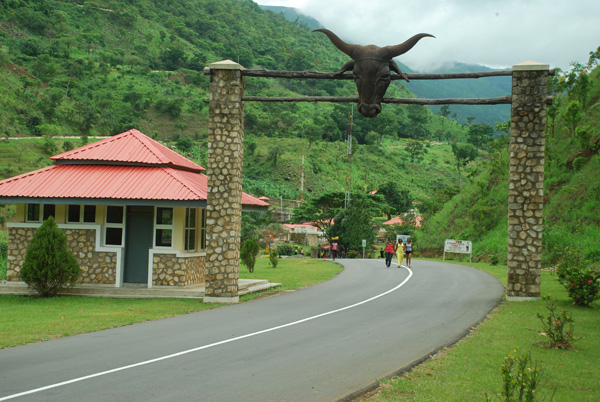Calabar, the people’s paradise

Calabar, Cross River State, is always dubbed Nigeria’s most cleanest city, but is this always true? AGOZINO AGOZINO writes about the city and the people.
For those who may not know, Calabar is an acronym for Come And Live And Be At Rest. It was coined by the indigenes and residents, who see the state as a place of beauty, peace and splendour. Calabar, the capital city of Cross River State, on the South Eastern fringes of the country is the peacock that illuminates the alluring beauty that goes with such acclaim.
Also known to tourists and fun seekers, as the ‘people’s paradise’, the serebut of this urban first capital city of old Nigeria, offers an irresistible charm that captivates the visitor with a disarming welcoming allure.
To the first time visitor, this allure, though hardly physical, is overwhelming that he would dream endlessly of a return to the city of residence where the legendry Scottish missionary, Mary Slessor, once lived and worked.
The cuisines in this state are of mouth-watering delight and the hospitality of the people is almost, always, boundless. The serenity that pervades the rich all-year greenery compares to none in the region.
The abundance of the historical artifacts blends with a rich cultural heritage that runs several centuries back, making Cross River, named after a tributary of the Atlantic Ocean that criss-crosses its landscape, a preferred destination for tourists wishing to relish the beauty associated with the Niger-Delta region.
Historically, Cross River State has been in existence as a geo-political entity since May, 1967. It was merely re-christened in 1976 when the late General Murtala Muhammed increased the number of states in the country with an additional seven, making them 19.
Cross River State occupies the southeast corner of Nigeria’s territorial expanse and lies between latitudes 4°25 and 70° (north), and longitudes 7. 15° and 9.300 (east). Its major towns in the state are Calabar or ‘Canaan City, as it is also fondly called by the indigenes, Ikom, Ogoja, Obubra, Ugep, Obudu and Akamkpa.
The cultural wealth of the state and its impact on visitors and indigenes are almost legendary. However, the economic misfortunes experienced in the past few years threatened, but, failed to dim the vibrancy and dynamism of the state until the emergence of the former Governor of the State, Mr. Donald Duke, who made the revival of tourism and culture one of its administration’s goals. Since then, the State has remained a leading destination for thousands of tourists every year. Ceremonies like Nkimand Ekpa of the upper Cross River, the Reboku of the Yakurr and secret societies like Obon and Ekpe, have been handed down to the present day with hardly any serious changes. The effect of time on the people’s crafts and skills has been equally interesting.
As an attribute of the people, culture is also reflected in their hospitality, dance style, masquerade, history and archaeology, monuments etc.
Cultural activities in the state reached their peak recently when the State revived the Obudu Cattle Ranch. The state has continued to receive international visitors. Cultural festivals are largely organised by the state tourism management, though, individual groups organise theirs too, particularly, during special seasons such as new yam celebrations.
Prominent among cultural groups in the State are Esop Mkparawa, the Nka Nkaiso, the Nka Ekpenyong Nnuk and Ogoja Community Association. These bodies are working hard to promote cultural identity and unity.
A trip of the State will, undoubtedly, reveal that Cross River State has enjoyed early western civilisation both in terms of education and Christianity. This is evident in the number of historical sites scattered throughout the State. These include the Tomb of Mary Slessor, a Scottish missionary nicknamed ‘The White Queen of Okoyong’ born on December 2, 1848 in Aberdeen, Scotland and who worked so hard in eradicating some of the most horrible and inhuman practices of the time in the old Calabar. Other places of interest are the European cemetery in Calabar. It is an exclusive grave yard for the colonial administrators associated with Nigerian history.
The Hope Waddell Institute, first post-primary institution in the State was founded in 1895 and located in the state capital, it’s where the first President of Nigeria, Dr. Nnamdi Azikiwe and other nationals attended.
Other structures of historical significance in the state include the residency and the old consulate, Calabar, which are relics of colonial days in this part of Nigeria which is now used as the official residence of the State Governor. Other historical sites are the Chief Ekpo Ekpo Bassey’s house located at 19 Boco Street in Calabar.







